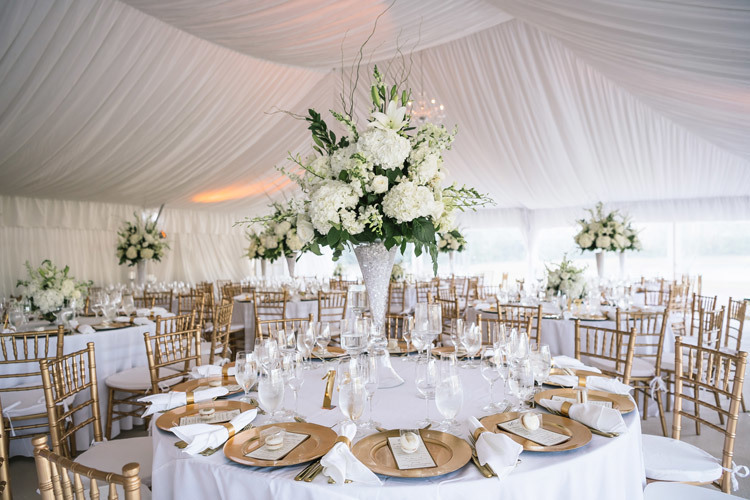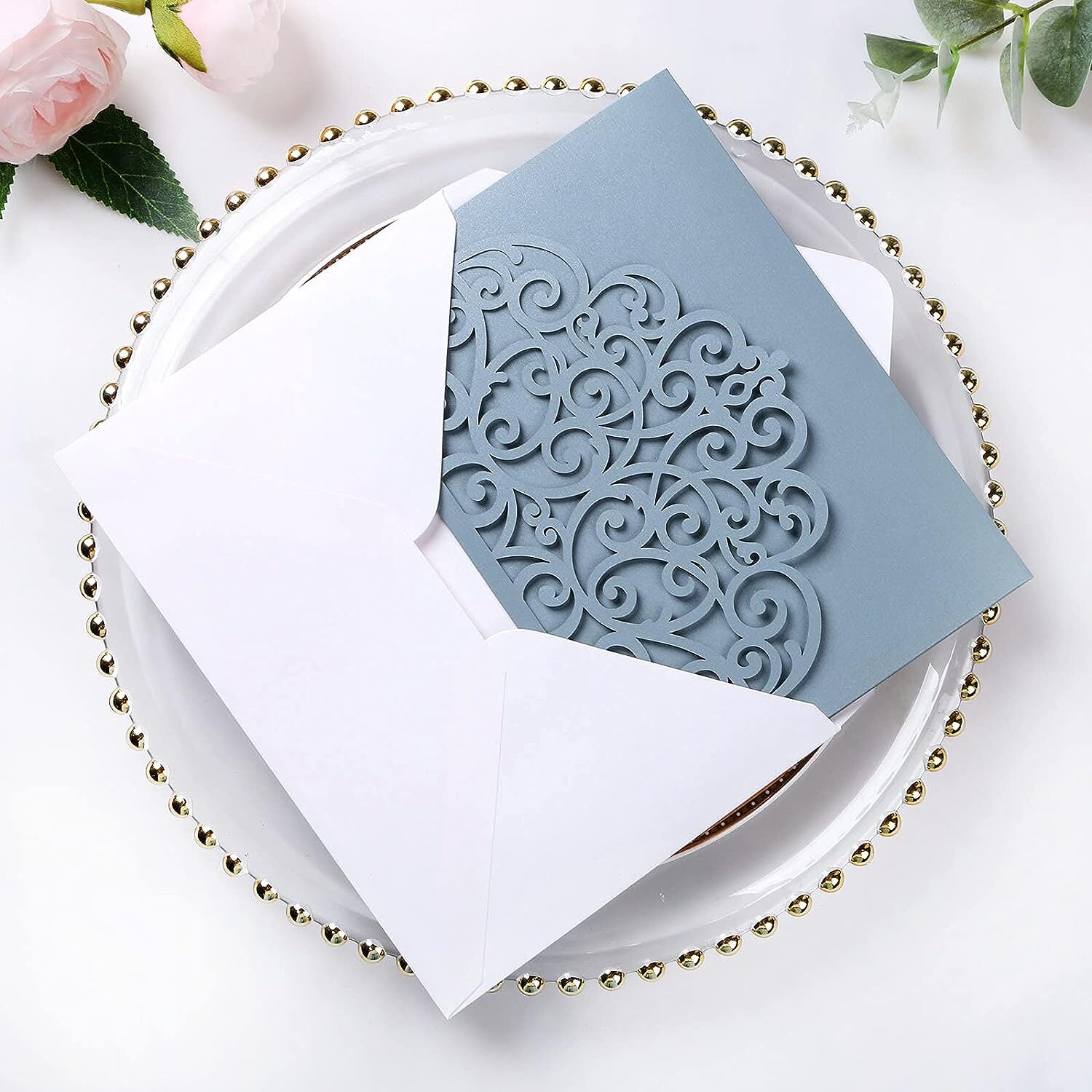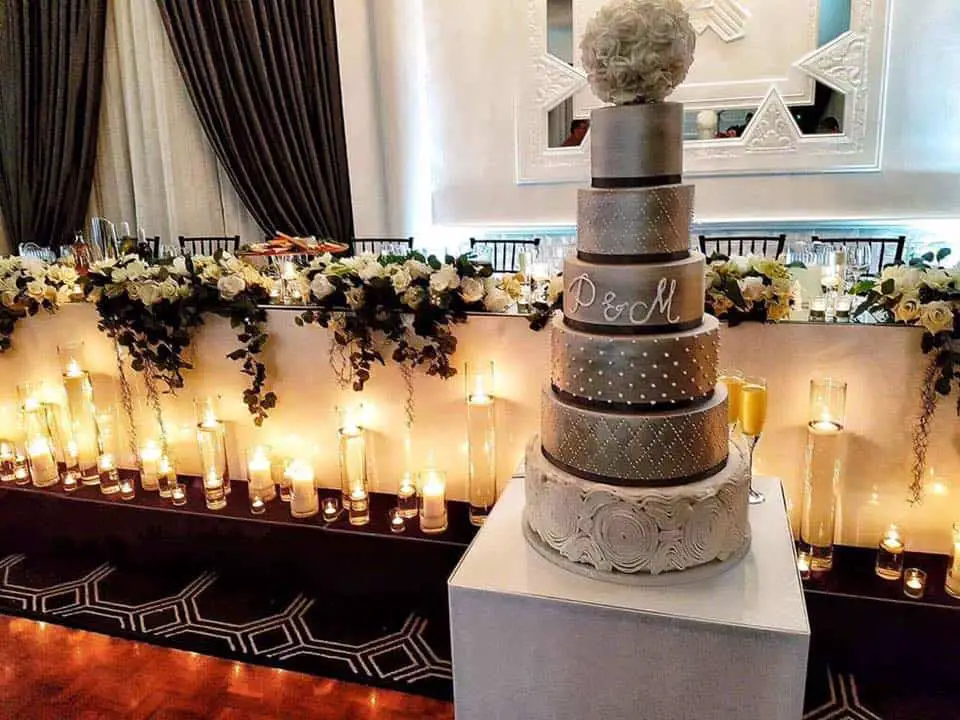Planning a wedding can be a daunting and overwhelming task, but wedding professionals are here to help. In this article, wedding experts share their tips for effective and efficient wedding planning. From dealing with unexpected situations and letting go of perfection, to staying true to personal decisions and getting important details in writing, these tried-and-true strategies will help make the wedding planning process a breeze. With advice on managing expectations, scheduling multiple vendor appointments in one day, and hiring a trusted wedding planner, couples can navigate the planning process smoothly and reduce stress. Additionally, establishing realistic expectations, saying goodbye to clients after the wedding, and providing resources throughout the planning process are among the many insights shared. So whether you’re a couple looking to plan your dream wedding or a wedding planner seeking to improve efficiency, these tips are sure to guide you towards a successful and enjoyable planning experience.

Tips for Effective and Efficient Wedding Planning
Planning a wedding can be an overwhelming task, but with the right approach, it can also be a rewarding experience. In this article, we will explore some helpful tips for effective and efficient wedding planning. From dealing with unexpected situations to getting important details in writing, these tips will help you stay organized and reduce stress throughout the process.
Dealing with Unexpected Situations
No matter how much you plan, unexpected situations can still arise during the wedding planning process. Whether it’s a sudden change in the weather or a vendor canceling at the last minute, it’s important to stay calm and have a backup plan. Remember, it’s not the end of the world if things don’t go exactly as planned. Embrace the unexpected and focus on enjoying the special moments of your big day.
Letting Go of Perfection
It’s natural to want everything to be perfect on your wedding day, but striving for perfection can lead to unnecessary stress. Remember that perfection is subjective, and what truly matters is the love and joy shared between you and your partner. Let go of the need for everything to be flawless and instead focus on creating a memorable celebration that reflects your unique personalities and love story.
Meeting in Person with Couples
In this digital age, it’s easy to rely solely on phone calls and emails for communication. However, meeting in person with couples can greatly enhance the decision-making process. Face-to-face conversations allow for better understanding and clear communication. It also helps to establish a personal connection and build trust with your wedding planner or vendors. So don’t underestimate the power of meeting in person when it comes to planning your dream wedding.
Limiting Advice Intake
While it’s always valuable to seek advice from friends and family who have been through the wedding planning process, it’s important to remember that ultimately, the decisions should reflect your own preferences and desires. Take advice with a grain of salt and remember that what worked for someone else may not work for you. Trust your instincts and stay true to your own vision for your special day.
Getting Important Details in Writing
When it comes to wedding planning, it’s crucial to have important details in writing. This includes contracts with vendors, timelines, and any agreements you make along the way. Having everything in writing not only helps you stay organized but also serves as a reference point in case of any misunderstandings or disputes. It’s a simple but effective way to ensure that everyone is on the same page and that your wedding day goes smoothly.

Challenges in Wedding Planning
While wedding planning can be an exciting time, it also comes with its fair share of challenges. Let’s take a closer look at some of the common obstacles couples face and how to overcome them.
Narrowing Down Focus and Staying on Budget
One of the biggest challenges in wedding planning is narrowing down your focus and staying within budget. With so many ideas and options available, it’s easy to feel overwhelmed. To tackle this challenge, start by prioritizing what matters most to you and your partner on your wedding day. Set a realistic budget early on and make a list of must-haves versus nice-to-haves. This will help you stay focused and avoid unnecessary expenses.
Managing Expectations Between Couple and Family Members
Another common challenge is managing expectations between the couple and family members. Weddings often bring together different ideas, traditions, and opinions, which can sometimes lead to conflicts. To navigate this challenge, open and honest communication is key. Make an effort to involve your families in the planning process, listen to their suggestions, and find a compromise that makes everyone happy. Remember, this day is about celebrating your love, so finding a balance between honoring tradition and creating your own unique wedding is important.
Scheduling Multiple Vendor Appointments in One Day
For busy couples, scheduling multiple vendor appointments in one day can save a significant amount of time. However, it can also be exhausting and overwhelming. To make the most of these appointments, create a schedule and come prepared with a list of questions. Take detailed notes and compare the different options afterward to make an informed decision. Remember to trust your gut instinct and choose vendors that align with your vision for your special day.
Hiring a Trusted Wedding Planner
While some couples choose to plan their wedding themselves, hiring a trusted wedding planner can greatly reduce stress and ensure a smooth planning process. A wedding planner brings expertise, experience, and valuable industry connections to the table. They can handle the logistics, recommend reliable vendors, and assist with budget management. To find a trusted wedding planner, ask for recommendations from friends or family, read reviews online, and schedule initial consultations to see if you have a good rapport.
Sticking to a Checklist
With so many tasks to complete and decisions to make, it’s easy to feel overwhelmed and forget important details. Creating a wedding planning checklist is essential to stay on track and ensure that nothing falls through the cracks. Start by listing all the tasks that need to be completed, set deadlines for each task, and check them off as you go. This will help you stay organized, reduce stress, and ensure that you’re not forgetting any important details.
Being Aware of Budget Constraints
Budget constraints are a reality for most couples when planning a wedding. It’s important to be aware of your budget limitations and make informed decisions accordingly. Research the average costs of different wedding elements in your area, and allocate your budget accordingly. Be open to alternatives and DIY options to save money where possible. Remember that it’s not about how much money you spend but how you choose to prioritize your expenses to create a meaningful and memorable celebration.
Establishing Realistic Expectations
When planning a wedding, it’s crucial to establish realistic expectations. Understand that not everything will go exactly as planned, and there may be some bumps along the way. Embrace the imperfections and focus on the bigger picture—celebrating your love and commitment. Trust your chosen vendors and professionals to deliver their best work, and allow yourself to enjoy the process rather than striving for perfection. By setting realistic expectations, you’ll have a more enjoyable and stress-free wedding planning journey.
Doing Research
Research is a vital part of wedding planning. From finding the perfect venue to selecting the right vendors, doing your homework will ensure that you make informed decisions. Take the time to read reviews, visit websites, and look at portfolios. Don’t be afraid to ask for references or for additional information on the services provided. Doing thorough research will give you the confidence to choose the right options for your wedding day.

Tips for Wedding Planners
Wedding planners play a crucial role in making couples’ dream weddings come to life. Here are some tips for wedding planners to provide the best possible service to their clients.
Saying Goodbye to Clients After the Wedding
For wedding planners, saying goodbye to clients after the wedding can be bittersweet. After months, or even years, of working closely together, it can be emotional to see them move on to the next chapter of their lives. Take the time to celebrate their special day and reflect on the journey you shared. Sending a heartfelt thank you note or a small token of appreciation can be a thoughtful way to show your gratitude and bid farewell to your clients.
Balancing Opinions when Multiple Family Members Are Involved
When multiple family members are involved in the wedding planning process, it’s important for wedding planners to balance different opinions and find a happy medium. Act as a mediator and facilitate open and respectful communication between all parties. Encourage compromise and support the couple’s vision while also honoring family traditions and preferences. Remember that your role is to guide and assist, but ultimately, the decisions should be made by the couple.
Providing Guides and Resources Throughout the Planning Process
To improve efficiency and make the wedding planning process smoother for your clients, provide them with guides and resources. Create a comprehensive checklist or timeline that outlines all the important tasks and deadlines. Share vendor recommendations, budget templates, and other helpful tools that will save your clients time and simplify their decision-making process. By providing these resources, you’ll help your clients stay organized and reduce their stress levels.
Short Planning Period for Quick Decision-Making
Sometimes couples have a short planning period and need to make quick decisions. In these situations, it’s crucial to be proactive and efficient. Streamline the decision-making process by presenting the couple with a curated selection of options that match their preferences and budget. Offer your professional opinion and guide them through the pros and cons of each choice. Provide clear and concise information to help them make informed decisions within the limited timeframe.
Regular Check-ins for Busy Professionals
Many couples planning a wedding have busy professional lives, which can make it challenging to stay on top of all the wedding planning tasks. As a wedding planner, regular check-ins with your clients are essential. Set up recurring meetings, whether in person or via video calls, to review their progress, answer any questions they may have, and provide guidance. By staying in regular communication, you’ll ensure that your clients feel supported and that no details slip through the cracks.
Working with an Amazing Team and Top-notch Vendors
As a wedding planner, working with an amazing team and top-notch vendors is crucial for a successful wedding planning process. Build relationships with reliable vendors who share your vision and work well together. A strong team of professionals who communicate effectively and collaborate seamlessly will ensure a smooth and enjoyable planning experience for both you and your clients. Investing time in fostering these relationships will pay off in the long run.
Educating Clients about Wedding Costs
Wedding costs can often be a source of stress and anxiety for couples. As a wedding planner, it’s essential to educate your clients about realistic wedding costs from the beginning. Provide them with detailed estimates and breakdowns of different elements of the wedding. Be transparent about the costs involved and help them set a realistic budget that aligns with their vision. By educating your clients about wedding costs, you’ll help them make informed decisions and avoid any financial surprises along the way.
Helping Clients Set a Realistic Budget
Setting a realistic budget is one of the first and most important steps in the wedding planning process. As a wedding planner, it’s your role to guide your clients in setting a budget that aligns with their vision and priorities. Discuss their must-haves, priorities, and any budget constraints they may have. Share industry insights and average costs to help them make informed decisions and allocate their budget accordingly. By helping your clients set a realistic budget, you’ll ensure that they have a clear understanding of what they can afford and avoid any financial stress down the line.

Recommended Tools for Wedding Planning
While there are numerous tools available for wedding planning, one highly recommended option is Aisle Planner. Aisle Planner is a comprehensive wedding planning platform that allows couples and planners to collaborate seamlessly. It offers features such as budget management, guest list management, timeline creation, and vendor communication. With Aisle Planner, couples can stay organized, track progress, and easily communicate with their planner and vendors. It’s a valuable tool that streamlines the wedding planning process and reduces stress for all parties involved.
In conclusion, effective and efficient wedding planning requires a combination of organization, communication, and flexibility. By dealing with unexpected situations, letting go of perfection, meeting in person with couples, limiting advice intake, and getting important details in writing, couples can stay organized and reduce stress throughout the planning process. Additionally, wedding planners can provide guidance, balance opinions, and offer resources to improve the efficiency of the planning process. With the right tools, such as Aisle Planner, couples and planners can streamline their tasks and make the wedding planning journey more enjoyable and successful.


